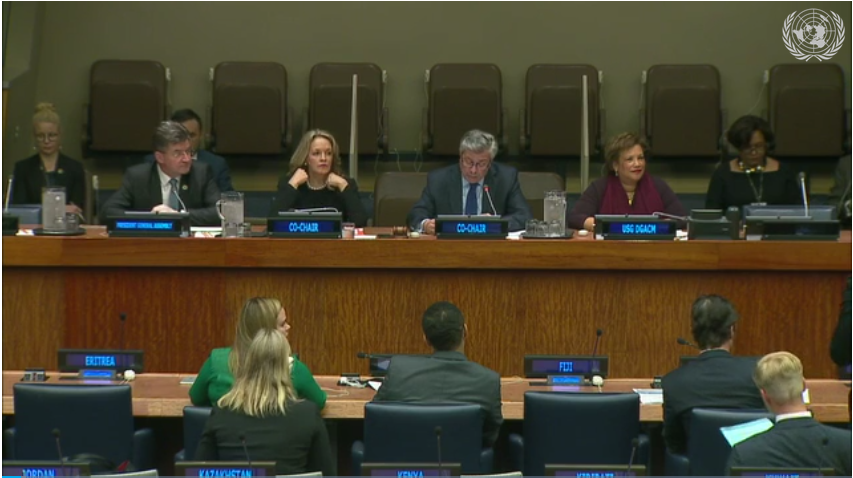Over two thirds of UN member states have called on the General Assembly to start consolidating the major improvements achieved in the run-up to the 2016 selection of the Secretary-General that made the process more open, transparent and inclusive and to institutionalise lessons learned. The pertinent call was made on 20 February by 120 members of the Non-Aligned Movement (NAM) and 25 members of the Accountability, Coherence and Transparency (ACT) group in the annual debate of the Ad-Hoc Working Group Revitalization of the work of the General Assembly (AHWG).
The 1 for 7 Billion campaign welcomes this commitment. Hard won gains - such as starting the selection process with a joint call for candidates from the Presidents of the Security Council and General Assembly, the publication of candidates’ names and vision statements, and the holding of open candidate meetings with states and civil society - may not apply to forthcoming selection processes unless they are consolidated in a subsequent resolution.
Ahead of the discussion, 1 for 7 Billion wrote a letter to ambassadors of all UN member states urging them to codify the ground-breaking progress made without delay, saying “It is crucial that the major advances achieved should be preserved in a resolution and further strengthened.” The letter also suggested specific further improvements to the process, some of them echoed by member states during the debate, such as: setting a deadline for nominating candidates (called for by the NAM); for the Security Council to propose multiple candidates to the General Assembly to choose from (by the NAM); the need to clarify the presentation and withdrawal of candidacies and for the Security Council to promptly publish the outcome of straw polls (by Chile) and discussing appointing the Secretary-General for a longer, single term of office (by South Africa).
1 for 7 Billion also welcomes the large number of states (including members of the NAM and ACT) who stressed that the Secretary-General should exercise full independence in making senior appointments on merit. They reiterated their call for an end to the practice of permanent members of the Security Council (P5) extracting promises from candidates for Secretary-General in exchange for support resulting in a de facto monopoly on key senior posts for their own nationals. Argentina, Brazil, Singapore, the Philippines, and the NAM highlighted these long-standing concerns. Ecuador stressed that this practice reduced the number of qualified candidates for senior posts and “impoverished” the selection processes.
On 5 February 2018, in a letter to the Secretary-General, 1 for 7 Billion expressed similar concerns. Referring to appointments that the Secretary-General has made that appeared to confirm this practice, the campaign asked Mr Guterres “what measures have been put in place to actively search for and appoint the most highly qualified senior officials, especially Under-Secretaries-General, and whether this was done in a competitive and transparent process, regardless of nationality, while also ensuring equal and fair distribution based on gender and geographical balance”. 1 for 7 Billion wished to learn whether this invariably included public advertisements of these posts, with the opportunity for all member states to put forward highly qualified candidates. The campaign urged the Secretary-General to follow such practices also in making two other key senior appointments: Under-Secretaries-General of the Department of Peacekeeping Operations and of Political Affairs, both due to be made before 1 April this year. They have been held for several successive terms by France and the USA respectively.
During the debate, several states welcomed, as 1 for 7 Billion has also done, efforts made by the Secretary-General to achieve gender parity in senior positions in his Senior Management Group. These states regretted that there was still a long way to go in other parts and at other levels of the UN system, pointing out that nearly all 73 Presidents of the General Assembly had been men.
1 for 7 Billion is pleased that this was the first time that the AHWG meeting was designated as an “open” meeting and was webcast through www.webtv.un.org. It will be concluded in March before a more in-depth debate about the selection and appointment of the Secretary-General on 16 April.

